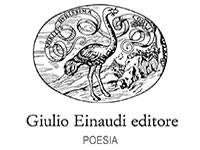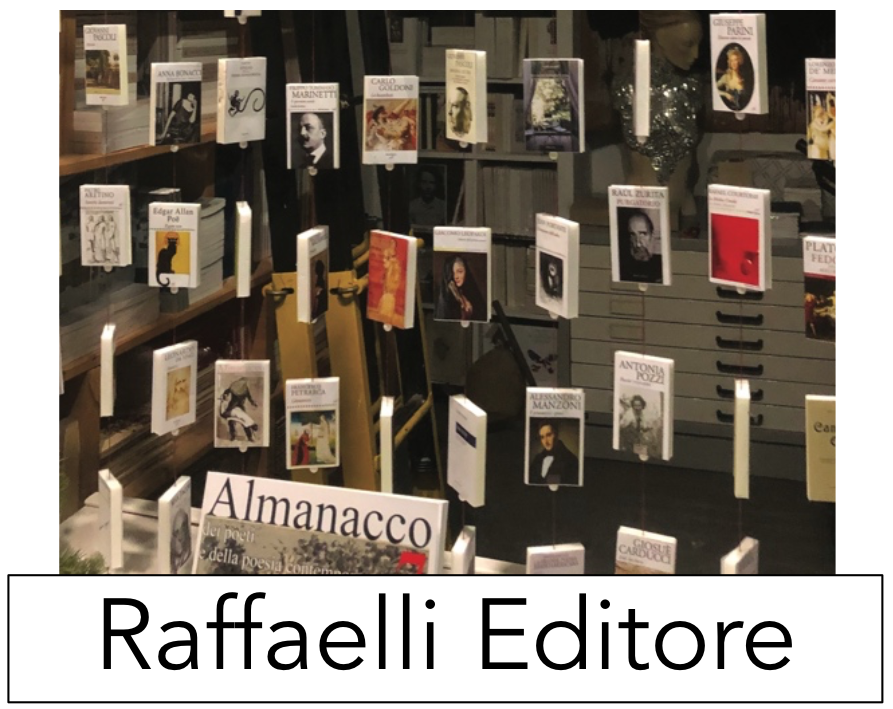TRANSLATIONS
ELEGIA
The charming hippos that in the water were
completely submerged (you could see the tips
of their backs, just barely) do you
remember them, my love? How deliciously
charming they were! And you said: “Where are they?
If you can’t see them, how can you say
they’re lovely?” Oh, my love, they were
in the water, and maybe you knew not the
Italian word when I said: “Darling!
Hippos there are that, having
seen the world, return to the water,
quite rightly, with the other mammals
emancipated from the sea.” And when
of the two one emerged, the delicious warmth
of the water and the kisses of his mate
abandoning, to breathe and bite a bit
of mire on the bank (how disgusting!
we thought, and I said: “What a foul
mouth he must have!”) and suddenly his mouth
he opened in yawning, as far as it would
go. How white and rosy were
his fangs! And how surprised
you were, what a precious start
you gave! And with how many kisses
would I have showered you, but I must needs
drive on, for the other cars
had amassed behind us
and were a menacing and stupid herd.
(translated by John Satriano)
ALBIO
Albio is the little walnut tree at the left
of the road climbing from the house
to the gate. This morning passing by
I looked at him and saw he had
made little walnuts, in pairs, biggish
already, bright green, a bit sparse,
not a lot but oh so lovely and I thought
that last year he hadn’t made any
yet, and this year was the first time
he was making them, and I also looked at
his leaves, clear and perfect and oval,
without a blemish, without a single spot
or hole, nothing, and at his high little
branches too, down to his smooth and slender white
trunk and at the perfect and graceful form
of the whole little tree, standing straight
in the light, and I thought: Everywhere I look,
the apple trees, the pear and plum trees, the two
little cypresses bent by the snow,
the roses, even the weeds!
are sick, but, Albio, you are so healthy
and bright, beautiful and neat
and you’re standing in your lovely corner
in the light; and I thought (and it was as if
he were waiting for someone
or something), I thought: they’re all sick
in some way or other, there isn’t one without
something, and it was up to me to cure them,
that’s right, give them poisons, prune their
branches, and instead I haven’t done a thing,
and before long I’ll have to leave home too
and all this, the pair of little cypresses
and Antenor the first to bloom in the
apple grove, and the fig and pine trees, both dead,
and the roses and the weeds growing
without respite and the garden of the one I love,
all will I have to leave, all, and
Albio, you are so lovely, oh why,
why are you so healthy and lovely, Albio?
Who for? I thought, who for?… and I could almost
hear his quiet breath and already I was
chasing a crooked shadow away and
a sparkle in the light and already I wanted to
see him no more, and down the street I returned
and I knew not your glory, no,
I knew it not, I knew nothing at all,
and my eyes were filling with tears.
(translated by John Satriano)
A luminous dawn was arriving at the windowpanes
I’d woken up, I know not how
but as if I were still asleep
or as if no passage had taken place,
I saw the dawn on the glass, and it seemed to me,
now as I look back on it in my memory,
seeing my boyhood room
with its desk, its books
and its white window curtains,
it seemed to me that it turned,
as if suspended, that it went off
without stopping in the wind…
But I still see the room, there’s light,
the birdsong outside is astounding,
and the metal net of the roses
and Marsilio’s vegetable garden, and in what tree
the little birds? Now awakened
in the pale light, in what tree are they?
On what branches do they hop? The light
I see, them I hear, but I see them not.
And the dawn goes off with the wind, the room recedes
into bluer and deeper space…
And you see them one by one and take them
in your luminous, golden hands.
(translated by John Satriano)
Walking along your way,
path, or maybe it’s you walking inside me,
maybe you are the creature
and I a road, a way.
Because, how whole you are,
how well made you are, and shapely
in all your parts.
And when I meet you, you seem alive to me
for you come to meet me, happy,
or when the rain is beating down, and you stand motionless
as the cows, without seeking shelter,
already the water is chattering
and you become a stream.
(translated by John Satriano)
Sweet little duckling
it’s night now, you’ve fallen asleep,
you’ve lain down in water or on land close to shore, I know not which,
maybe hidden in the rushes, in the dry leaves.
You’ve closed your eyes, you little darling,
you saw the evening come,
the rosy twilight and then the dark,
a gust of wind blew up, did you feel it?
and lo and behold everything turned black,
you felt the stones, tepid by the shore,
you were afraid of something, I don’t know what,
but then you played with a leaf,
you tried to sink it in the water with your beak.
The hands of my love were far from your feathers,
my love could not see you, she was unable to kiss you,
but a sweet slumber came over your eyes
and you fell asleep,
in water or on land close to shore, I know not which.
(translated by John Satriano)
How lovely that this time
is like all other times,
that I write poems
the way poems have always been written,
that this cat before me is washing herself
and her time is passing
despite the fact she’s alone, almost always alone in the house,
yet she does all that she does and forgets nothing
— now for instance she is lying down and looking around —
and her time is passing.
How lovely that this time, like every time, will end,
how lovely that we are not eternal,
that we are not different
from anyone else who has lived and died,
who has calmly gone to death
as if on a path that seemed hard and steep at first,
but instead was easy.
(translated by John Satriano)
What is your name?
What is your name.
What is the name of that little bird
that has just landed on the sidewalk
and is pecking at the ground?
And now at school, while the girls are writing,
I look on the class list at their names,
names I hadn’t seen yet.
And for a few, they seem strange,
as if things apart from them,
and I think: Girls, I would have given you other names,
but I don’t utter these words.
And I look at their unrestrained joy,
like a dazzling waterfall
scattering through time,
like seeds separating
and then all of them coming together again.
(translated by John Satriano)
While the students write the theme
their heads bent on the paper
the room of the class rest quiet
and shine a light around their heads.
I look them, and their strongness pungles me
– a girl has come for asking me something
and in their blue eyes I get lost-
some girls are less beautyful
but in their traits I see again the glory
of latin women
the august manner and the note features
– I think to young prenestine woman, very anchient
adorned of jeweleryes, elegants
and to poor maidens, peasants girls, pastorals
of the darkest siecles –
and also to the boys, how glory upon their heads.
And in all of them, how many expectations, how many hopes
– those amongs all my students are the oldest,
they are already grown up –
and I think : how did I say nothing to them!
how could I do nothing? – couldn’t I? –
just worried to be a teacher,
in the rush I am always, and
as if I never realized about them.
And I am surprized of having been able
still to float in this light abyss,
and of having been unhurt, sace, amongs such strongness of
[fluxusus,
trough so much calm sea, as in a celest sky.
(translated by Marta Massaioli)




